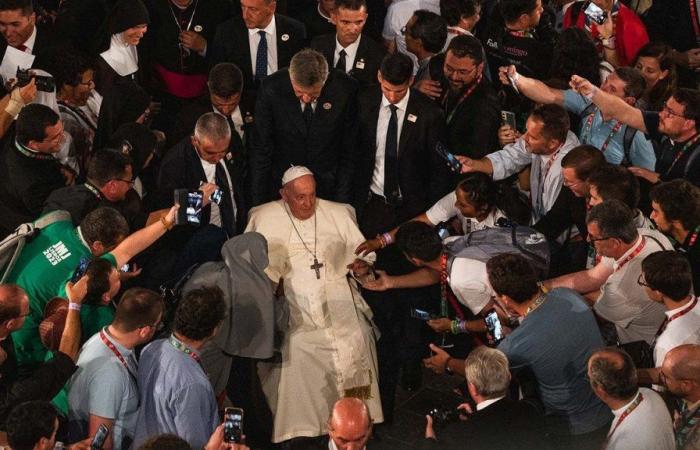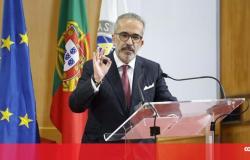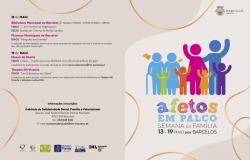Sinodal Network in Portugal publishes a summary of the contributions of Portuguese dioceses on the synodal path
Rui Saraiva – Portugal
On January 6, 2024, Epiphany of the Lord, the website ‘Rede Sinodal em Portugal’ (www.redesinodal.pt) was launched to express hope in the path of the Church.
The platform, developed by a team voluntarily, is inspired by the book “We are not afraid – Reflections on World Youth Day Lisbon 2023 and the synodal path”, and opened a space in the digital environment that centralizes synodal information, proposing paths of encounter and dialogue.
The website was announced to all bishops and dioceses in Portugal, and their respective synodal commissions, who were asked to provide input on the progress of their respective synodal work processes. It now presents a synthesis: the pulse of the Synod in Portugal.
The synodal pulse of the dioceses
The first diocese to send information was Vila Real through its Diocesan Synodal Team, which reported the preparation of a meeting strategy to “involve the entire diocese in the synodal journey” and combat the “alienation” felt by “some sectors of the Church” . He also informed that “a proposal and a calendar, as well as a worksheet, had been drawn up to help better organize this phase at diocesan level”, disclosing dates to be met. After about two months, the same diocese also sent the synthesis, sent to the Portuguese Episcopal Conference (CEP), which highlights several points of reflection such as conversion to synodality, the role of women in the Church, a more welcoming Church and young people as protagonists.
“The urgency of converting to synodality was clear, although there is still a certain distrust in the process, even among the clergy themselves. To overcome this limit, it is advisable to broadly share, reflect and deepen the Summary Report of the Synod of Bishops, through meetings in parishes, archpriests, movements and secretariats”, writes the Synodal Team of the diocese of Vila Real.
Meanwhile, the Sinodal Network learned that in the Patriarchate of Lisbon the respective Synodal Commission developed a “strategy” that “passed through a Diocesan Assembly of Local Coordinators (Delegates of Christian communities), on January 13, 2024”. After this assembly, the delegates would have the mission of energizing their communities. It is worth noting that the young people of the diocese “also did synodal work (Forum Geração Rise Up) following World Youth Day”.
In turn, the diocese of Aveiro shared the “greatest concern of not letting synodal dynamism die” and reported that the diocesan synthesis is “a starting point in pastoral planning work” and “decision-making in the various ecclesiastical bodies”. The document sent highlights the “attitude of permanent pastoral conversion”, pointing to the “pastoral revitalization of communities, more open to the mission, more attentive to the peripheries”, and the “urgency in defining priorities in the search for paths that challenge the conscience of the believers.”
The Synodal Commission of the diocese of Porto decided to open reflection on the Synod Summary Report to the Diocesan Pastoral Council and the Diocesan Presbyteral Council. Moments of reflection that took place during the month of February 2024, he reported. The Porto Synodal Commission highlighted the importance of the diocesan consultation carried out in the first phase of the Synod and the respective synthesis that gave expression to the participation of 194 parishes and more than 30 contributions from communities of consecrated life, movements and other groups.
The diocese of Lamego wants to see this “synod as a never-ending process” and its Synodal Commission reported that in this time of reflection “a kind of summary of one of the parts of the synthesis report was published each week”. The intention was that “as many people as possible become aware of the contents of the Synthesis Report, so that they can speak out more assertively”, explained the Commission.
The diocese of Angra launched on its portal, www.igrejaacores.pt, a “consultation with the entire People of God about the Church that we are and the Church that we want to be, in the sense of walking together”. Under the banner with the logo of the biennium and the Pastoral Itinerary appears the word “participate” which leads to a form, which “invites all visitors to participate in our Itinerary which intersects, naturally, with the Itinerary for the preparation of the Assembly of Synod”, as disclosed to Rede Sinodal.
The diocese of Guarda was involved in preparing the synthesis to be sent to the CEP, through its Presbyteral and Pastoral Councils, pointing out the “responsibility of the laity, including opening the way for them to also be able to lead communities, the place of women in the life of the Church, who, visibly, are the largest number of participants, the need to take better care of the training of the clergy, as, nowadays, this is also the obligation of any professional”. In a statement, the Presbyteral Council stated that “with regard to the role of the bishop” it is necessary to “create conditions for the exercise of greater co-responsibility in leadership”.
In the diocese of Portalegre-Castelo Branco, synodal reflection involved groups and communities, based, above all, “on numbers 8 to 12, 16 and 18 of the Summary Report of the First Session of the XVI Ordinary General Assembly of the Synod of Bishops”. In an “aging and desertified” diocese, it is not always easy to “address these topics and have people to reflect on the synod”, as the diocesan Synodal Commission shared with the Sinodal Network.
Meanwhile, the diocesan Synodal Team of Setúbal “has prepared a guideline sent to the Clergy and Local Coordinators to support the working groups”. In a message sent to the communities, Cardinal Américo Aguiar, bishop of Setúbal, asked for “special commitment in this new phase of the synodal process”, which would culminate on March 17th in a meeting of local coordinators.
The diocese of Bragança-Miranda promoted training for all pastoral agents on synodality, “How to be a synodal Church on mission?”, where the diocesan bishop, D. Nuno Almeida, admitted the need for “a synodal culture and spirituality” .
The remaining dioceses, Algarve, Beja, Braga, Coimbra, Évora, Armed Forces and Security, Funchal, Leiria-Fátima, Santarém, Viana do Castelo and Viseu, were contacted by Rede Sinodal, but did not disclose information.
Synodal dialogue meetings
In the dynamics proposed, the Sinodal Network is promoting face-to-face synodal dialogue meetings, which have already been implemented with meetings in the dioceses of Aveiro, Coimbra and Porto. Meetings will soon take place in the dioceses of Lisbon, Guarda and Braga.
In a movement of voluntary spirit, based on the hope of a joint path, the Synodal Network in Portugal asserts itself as an open space, welcoming and disseminating, where the pulse of the Synod in Portugal leads to reflection on so many themes that involve, question and bring joy to us in this sharing of the Gospel.
Laudetur Iesus Christus
Listen to the report here and share






